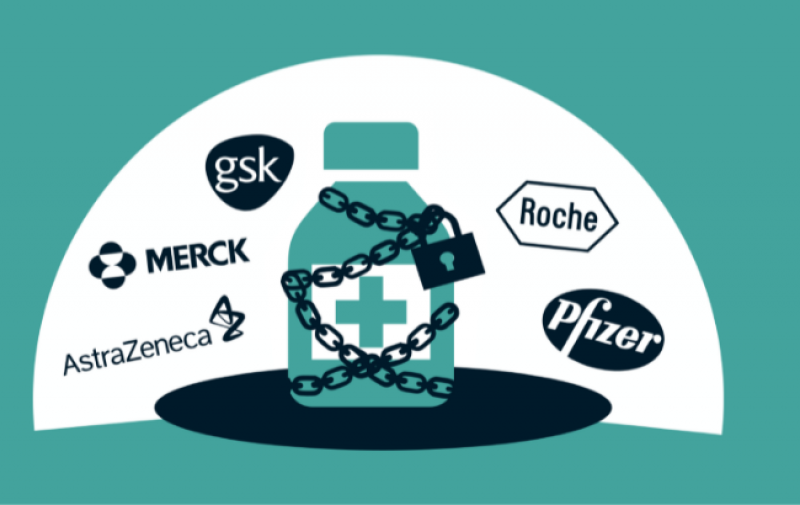
Vaccine transparency case is still not closed, despite EC’s claim
Almost two years after lobby watchdog Corporate Europe Observatory (CEO) filed Freedom of Information (FOI) requests concerning the Covid-19 vaccine contracts and negotiations between the EU and pharmaceutical companies, the European Commission has published a final batch of 275 documents.
CEO submitted two FOI requests in September 2020. In March 2021, after the European Ombudsman intervened on CEO’s behalf, the Commission sent a list of 365 relevant documents, announcing that those that can be disclosed "will be made progressively available online on a Commission website".
But the Commission failed to deliver: after a first batch of 80 documents was released in June 2021 it remained silent for six months, leaving CEO no option but to submit a new complaint. Following this complaint, the European Ombudsman in January 2022 re-opened her inquiry into the Commission's failure to disclose these documents. This week CEO has replied to the EC’s answers via the Ombudsman.
Now, although CEO has received the promised documents, many key documents are heavily redacted and so, unfortunately, the case for transparency is nowhere near closed.
Olivier Hoedeman, researcher at CEO, said: “It has been an exceptionally long battle for transparency and we regret that so many of the documents are heavily redacted, but CEO expresses the hope that MEPs, citizens and journalists around Europe will make good use of the information that is now publicly available, and will scrutinize the documents.”
“We particularly hope that the MEPs on the European Parliament’s special COVID Committee will use the information to get to the bottom of the way the EU has responded to this historic epidemic.”
“The deal struck last night at the WTO in Geneva concerning the TRIPS Waiver, has rightfully been criticised and rejected by civil society because It simply fails to put people’s health before profits. The fact that the EU has been instrumental in preventing a positive outcome for the world’s poorest is a disgrace for the EU. The scandalous extent to which the EU has sided with Big Pharma underlines the importance of securing transparency and accountability in EU vaccine politics.”
CEO has today shared the new documents with MEPS on the European Parliament’s special COVID Committee. On Monday when this Committee will meet again, CEO will publish a first-look analysis of what the documents reveal about the EU’s disastrous U-turn away from its promise that covid-19 vaccines would become “a global public good” accessible also to low-income countries.
ENDS
Notes to Editors:
- Since the start of the pandemic CEO has been investigating researching key aspects of the EU's pandemic response, including the EU vaccines strategy, the therapeutics strategy and EU's position on the TRIPS waiver talks (see list of publications at the end of this message). We have documented the deeply problematic influence of the pharmaceutical industry and its lobby groups in these decision-making processes. Our research has uncovered an unacceptable level of opaque decision making and a lack of transparency and accountability on one of the most important debates of our time. Given the unprecedented nature of this pandemic, and from a democratic point of view, this is simply unacceptable.
- Our access to documents request and the redacted documents released at different stages are online here: https://www.asktheeu.org/en/request/the_vaccines_procurement_steerin#in…
- In the context of a failed WTO Trips Council agreement on a ‘waiver’ this week , CEO stresses there is one central burning question that needs particular scrutiny by the COVI committee: what happened to the EU's commitment to vaccines as a global public good, which was explicitly part of the agreement between the EU member states and the Commission in mid-June 2020 on the joint procurement of vaccines.
- Commission President Von der Leyen made several high-profile announcements in spring 2020 promising that vaccines would become a global public good. And this approach was spelled out in detail in the June 2020 agreement as follows: "The Commission will promote a Covid-19 vaccine as a global public good (our emphasis). This promotion will include access for low and middle income countries to these vaccines in sufficient quantity and at low prices. The Commission will seek to promote related questions with the pharmaceutical industry regarding intellectual property sharing, especially when such IP has been developed with public support, in order to these objectives. Any vaccines available for purchase under the APAs concluded but not needed and purchased by Participating Member States can be made available to the global solidarity effort."
- The rigid and irresponsible stance of the Commission and Member States regarding the proposed TRIPS waiver s in stark contrast to the approach outlined in the June 2020 agreement. Instead of treating Covid-19 vaccines as a global public good and promoting intellectual property sharing in order to achieve this, the Commission and Council have been blocking a proposal made at the WTO in October 2020 which 100+ countries deem a necessary condition for scaling up vaccine production for the world's poorest.
- Promoting vaccines as a global public good appears to have been dropped already in the summer of 2020 as the EU started negotiating vaccine purchasing deals with pharmaceuticals companies like AstraZeneca and Pfizer.
- Crucial questions to get answered are here.
CEO's 'Pharma Files' on the issue of COVID vaccines and therapeutics:
- Power and profit during a pandemic , ◦ Why the pharmaceutical industry needs more scrutiny not less
- Public and parliaments kept in the dark on EU role in global COVID patent struggle
- Vaccine scarcity: how the EU's appeasement of Big Pharma damages COVID-19 response
- EU risks public health in its protection of big pharma monopolies
- Patently absurd: EU more worried about Parma ham branding than COVID vaccine patents
- The Commission's echo chamber
- Big Pharma's lobbying firepower in Brussels: at least €36 million a year (and likely far more)
- 'Bitter pill: How the EU's defence of pharma profits could keep COVID treatments out of reach for millions'
